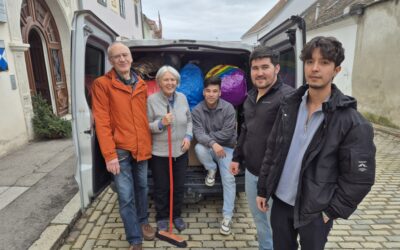
Economy of Communion: A new paradigm for the African Development is the title of the first Pan African Summer School of the Economy of Communion, which will be held from January 23 to the 25 at Mariapolis Piero in Nairobi (Kenya). There will be 110 aspiring young entrepreneurs who want to learn how to start businesses of communion, together with experts in the Economy of Communion from the United States, Philippines and Italy. The youth expected are from all over Africa (Ivory Coast, Burkina Faso, Mali, Togo, Cameroun, Central Africa, Congo, Kenya, Uganda, Burundi, Tanzania, Madagascar, South Africa and Angola); they speak 4 different languages: English, French, Portuguese and Italian.
Formation, reciprocity, and enculturation are the fundamental pillars of the school. “The Pan African Summer School is based on three assumptions,” said Luigino Bruni, responsible for the worldwide EoC project. “The first: today, cooperation in development is done with people, not with capital. Without quality universities, no serious development can take place. Second: the method of the school is reciprocity. There will not be any professors from the West who are coming to teach the African youth. Starting from the high esteem that we hold for the culture, everyone will learn from everyone. Thirdly: development cannot happen without business culture, and this is what Africa is missing today. Africa needs to open itself up to the market while saving the “community” roots that are so strong in its culture’s DNA. So, one can understand how “Economy” and “Communion” can truly be an important opportunity here.”
In the days that follow the school, from January 26 to 28, 2011, the Catholic University of Eastern Africa in Nairobi will host the International Conference on the Economy of Communion, in which 300 people are expected to participate. It’s the first time that the Economy of Communion will be presented in an African University. Dr. Aloys Blasie’ Ayako, Dean of this prestigious university’s Faculty of Commerce, has strongly encouraged this event – which will pay special attention to “business culture” – as he sees great hope for his people in the Economy of Communion culture.
To give continuity to this important moment, there is a professional development course in the works at CUEA. It is aimed at spreading an economic business culture for Africa and will be entrusted to a group of economists and scholars that work throughout the world developing the Economy of Communion.




0 Comments